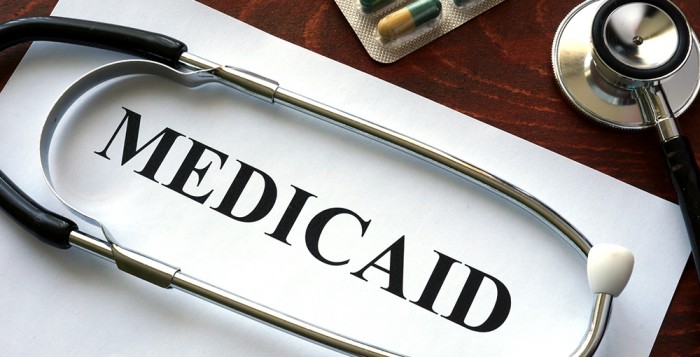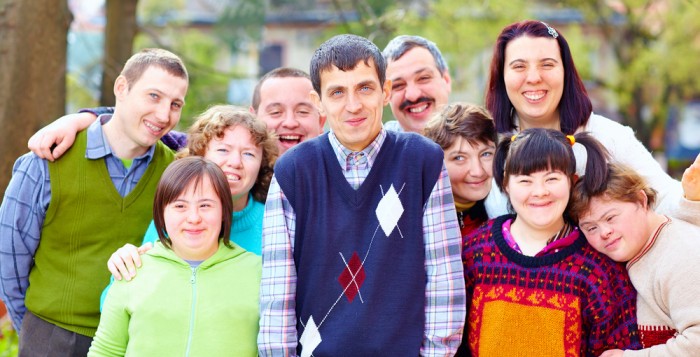This just in from the governor’s office:
FOR IMMEDIATE RELEASE
January 30, 2017
View Online
Governor Wolf Announces Plan to Create Department of Health and Human Services
Seeks to Improve Services and Benefits for Seniors, People with Intellectual and Physical Disabilities, and Those Suffering From Substance Use Disorder
Harrisburg, PA – Today, Governor Wolf announced his plan to create a Department of Health and Human Services (HHS) in his 2017-2018 budget in order to promote more effective collaboration and service delivery, enhance program effectiveness, and eliminate duplicative processes.
“This new department will streamline government and allow the commonwealth to deliver more effective services to seniors, individuals with intellectual and physical disabilities, and those suffering from a substance use disorder as well as promote the health and well-being of all Pennsylvanians,” said Governor Tom Wolf. “Over the past several months, I have worked closely with these four departments to break down silos and reimagine how we deliver critical services that will provide treatment to those suffering from substance use disorder, ensure children are receiving high quality services, and expand community-based opportunities for seniors. The creation of a new, unified Department of Health and Human Services will not result in any program cuts for Pennsylvanians, but will dramatically improve our ability to deliver services that will improve lives. “
The Departments of Aging (PDA), Drug and Alcohol Programs (DDAP), Health (DOH), and Human Services (DHS) have the same core mission: to improve public health and quality of life for all residents of the commonwealth. These four separate state agencies currently serve similar, and sometimes overlapping, populations.
Fighting Opioid Epidemic to Remain a Top Priority for New Integrated Agency
Governor Wolf has led the battle against the opioid and heroin epidemic and each of these agencies has been critical to this effort. Among many other initiatives, DOH launched a prescription drug monitoring program and has been raising awareness of the naloxone standing order, DDAP has led the effort to increase the availability of naloxone and drug take back boxes, DHS has created 45 centers of excellence to coordinate treatment for those suffering from substance use disorders, and PDA has led prescription drug take back efforts among the senior population encouraging proper use, storage, and disposal of unused prescription medications.
By creating an organization that is structurally better able to support and coordinate these efforts, individuals in desperate need of substance use disorder treatment will be able to access services through one agency with an integrated data and delivery system. The new HHS will serve as the single state authority for Medicaid, substance use, and mental health purposes enabling the commonwealth to maximize available federal dollars and offset state costs for staff and services. There will continue to be a cabinet-level position in Governor Wolf’s administration that will be dedicated to battling the opioid and heroin epidemic.
Delivering better services to those suffering from substance use disorder is just one example of the benefits realized through the creation of a new, unified department.
Senior Benefits and Programs Will Be Bolstered By Ease, Focus of Single Agency
Seniors will also have a single agency as their point of contact within state government to receive health and human services. Instead of receiving prescription assistance from PACE through PDA, applying for an aging waiver through DHS while seeking home and community-based services from PDA, finding where to dispose of unwanted or expired prescription drugs through DDAP, or searching for information on the quality of nursing homes through DOH, seniors would find the services they need through the Department of Health and Human Services. Furthermore, the creation of this department will have no impact on how lottery fund monies are used to support senior programs.
Reducing Complexity and Confusion for Seniors and Individuals with Disabilities
Currently, at least 21 separate services across the departments provide care for seniors and individuals with physical disabilities. The creation of the Department of Health and Human Services will eliminate the unnecessary duplication of effort and confusion among consumers and their families. The Wolf Administration is dedicated to continuing to provide the same quality services for seniors and individuals with disabilities and will dramatically improve the delivery of services like health screenings, programs to allow individuals to remain in their homes and communities, adult protective services, and home health care and housing supports, though the creation of this new department.
Reducing Red-Tape for Providers and Non-Profits Subject to Regulation
Currently, providers ranging from hospitals and child care centers to substance use treatment facilities and nursing homes are licensed by multiple agencies, many times for the provision of the exact same services. Requiring these businesses to subject themselves to multiple, duplicative inspections and audits costs them money. By centralizing facility licensure in one agency we will improve coordination, increase transparency, and promote uniformity for the health and human services field. The state and providers will be able to better focus our resources on our mission to improve the health and quality of life for citizens rather than back office functions.
In 2015, the administration transferred the Children’s Health Insurance Program (CHIP) from the Department of Insurance to DHS. Through this consolidation, the administration has increased the number of kids covered by 10 percent, shortened the average processing time for applications from 40 days to only one day, and saved taxpayers $8 million annually. Additionally, this consolidation resulted in an improved customer experience as many families move between the two programs on a regular basis due to income guidelines. In the same way, combining the Supplemental Nutrition Assistance Program (SNAP) and Women, Infants and Children (WIC) program will result in improved outcomes, shortened application timelines and cost savings to taxpayers.
“Responding to the diverse and sometimes complex needs of older Pennsylvanians often requires interaction with multiple state agencies which can be confusing and incredibly frustrating,” said PDA Secretary Osborne. “The opportunity to create a single, unified, Department of Health and Human Services will reduce fragmentation, eliminate silos, promote accountability, and create a culture of shared responsibility that puts Pennsylvanians first.”
“By working together under Governor Wolf’s leadership, this administration has saved lives by expanding access to naloxone, combatted the stigma of the disease of addiction, and has raised awareness of the severity of this crisis. However, our work is not done,” said Department of Drug and Alcohol Acting Secretary Jennifer Smith. “The creation of the Department of Health and Human Services will help us continue this fight in a collaborative, coordinated manner.”
“The health of all Pennsylvanians is first and foremost to the Wolf Administration,” said Secretary of Health Dr. Karen Murphy. “Consolidating state agencies into one new agency while improving services for Pennsylvanians is not only fiscally responsible, but will ensure that we can continue to meet their needs. The Department of Health team looks forward to working with our sister agencies on the consolidation plan to ensure that Pennsylvanians continue to receive needed services.”
“Consolidation puts the focus where it always should be — on the consumer,” said Secretary of Human Services Ted Dallas. “The Governor’s plan to create HHS will result in a more streamlined and cost-effective agency that delivers better services for Pennsylvania.”
The goal of the Department of Health and Human Services will be to deliver services that will improve the health and quality of life for all Pennsylvanians in an efficient, transparent, and uniform manner.
MEDIA CONTACT: J.J. Abbott, 717.783.1116
# # #


















